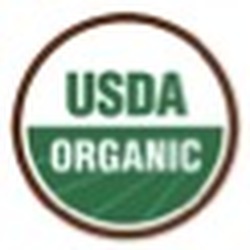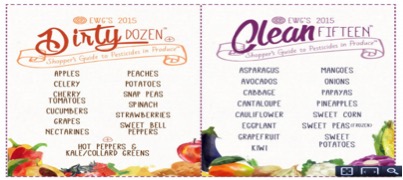|
When shopping for fruits and vegetables, it is easy to notice that some foods are advertised as organic while some are not. Deciding to buy Organic, Non-Organic/Conventional, or Certified Naturally Grown produce is a choice that depends on access, availability, and affordability. By understanding labels and growing processes you can become an informed, empowered shopper and begin to notice the similarities and differences in how farming practices and federal regulations (displayed through food labels/store barcodes) impact the environment, farmers, and food consumers.
Barcodes reveal information (2) about how your produce was grown: Organic or Non-Organic/ Conventional. Produce that is Certified Naturally Grown or from community-based farmers and mobile markets often have no labels. They are either sourced from, or directly sold by, farmers. Organic produce barcodes have five digits and begin with "9" (e.g., 9XXXX). Non-organic/conventional produce barcodes have four digits and begin with "4" (e.g., 4XXX). The Environmental Working Group (3) has identified the “Dirty Dozen4,” which are fruits and vegetables with the most synthetic chemicals left behind when conventionally grown. In contrast, the “Clean Fifteen” (4) typically have little traces of chemicals when grown conventionally. Buying organic or naturally grown fruits and vegetables when possible can reduce your exposure to chemicals. Here are ways to make the most of your food budget while ensuring your produce is high quality and nutritious:
The Atlanta Mobile Market's mission is to improve access to fresh fruit, vegetables, and health information in limited access settings to improve the health and well-being of the communities we serve. Guest blogger: Emily Vong, RD
References:
|
AuthorThe Atlanta Mobile Market Archives
July 2017
Categories |





 RSS Feed
RSS Feed